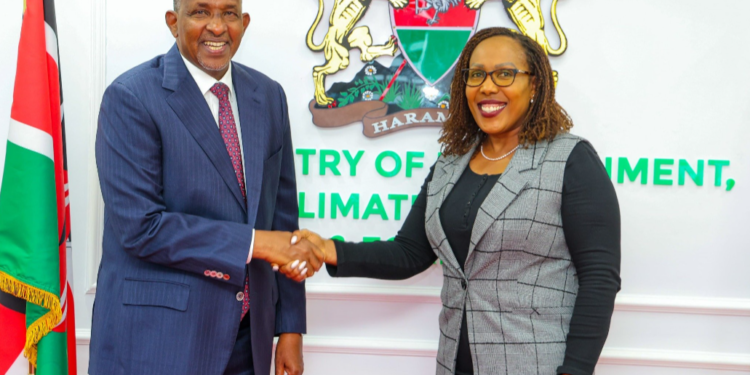The Ministry of Environment, Climate Change and Forestry has announced a strategic partnership with the Council of Governors (CoG) to tackle pollution in Kenya’s urban and residential areas. This collaboration is set to enhance pollution control measures and improve waste management infrastructure across the country, promoting healthier living conditions.
During a consultative meeting with CoG CEO Mary Mwiti on Wednesday, Cabinet Secretary Aden Duale emphasized the ministry’s focus on strengthening county capacities to adopt circular economy practices. This initiative includes the development of Material Recovery Facilities (MRFs) to process waste more efficiently and reduce environmental impact.
“We are committed to working with the counties to create a circular economy, which will not only help in managing waste but also create employment and wealth,” said Duale, reinforcing the government’s agenda of transitioning away from a linear waste management model.
The shift to a circular economy aligns with President William Ruto’s Bottom-up Economic Transformation Agenda (BETA), which seeks to stimulate local economies by generating jobs through sustainable practices. The Ministry views waste as an economic resource rather than a burden, with the potential to produce valuable products, much like the model followed by other African nations.
Mwiti highlighted the recent CoG visit to Ghana’s Jospong Group, one of the largest circular economy enterprises on the continent. She noted that the Kenyan delegation, led by Wajir Governor Ahmed Abdullahi, explored how Jospong’s approach to waste management could be replicated in Kenya. The CoG aims to attract similar investments from the Ghanaian conglomerate, a move that could significantly boost Kenya’s waste sector.
Principal Secretary for Environment and Climate Change, Dr. Eng. Festus Ng’eno, echoed these sentiments, calling for increased intergovernmental collaboration in natural resource management.















